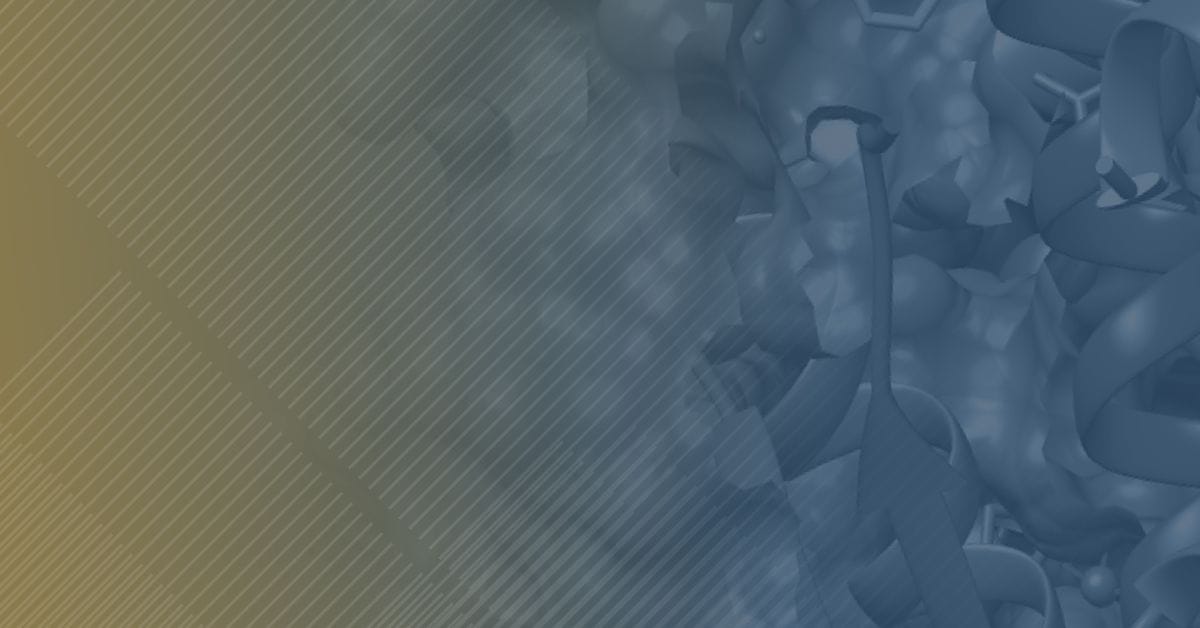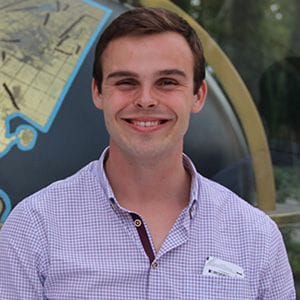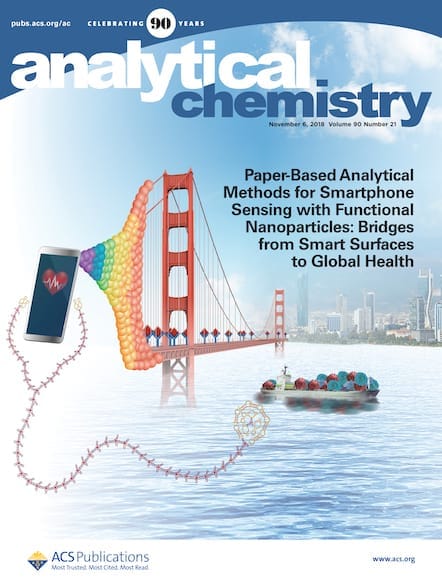Learn about Prof. Dick's research and career highlights in an exclusive interview, and browse some of his articles published in ACS journals.

Analytical Chemistry and ACS Measurement Science Au are proud to announce the inaugural winner of the 2024 Early Career Investigator Award in Analytical Chemistry:
Jeffrey E. Dick, Purdue University, Indiana, United States
This award honors the contributions of an individual who has demonstrated exceptional technical advancement and innovation in the field of analytical chemistry in their early career. Prof. Dick will be honored and present his research on Thursday, May 23, 18:00 - 20:00 EDT, as part of ACS Publications' Winners Week 2024 webinar series.
Learn more about Prof. Dick and his research below.

Prof. Jeffrey E. Dick earned a B.S. in Chemistry from Ball State University, where he graduated summa cum laude in 2013. He then spent the next 4 years of graduate study under the guidance of Prof. Allen J. Bard at the University of Texas at Austin, where he learned the beauty of electrochemistry and creative inquiry. After doing a short stint as a National Institute of Health CORE Postdoctoral Scholar in the laboratory of Prof. Kyle Miller at the University of Texas at Austin, Prof. Dick began his independent career at the University of North Carolina at Chapel Hill in July 2018. In 2022, Prof. Dick and 11 of his group members relocated to Purdue University. At Purdue, he is the Richard B. Wetherill Associate Professor of Chemistry and has a courtesy appointment in the Elmore Family School of Electrical and Computer Engineering.
Prof. Dick has authored more than 110 peer-reviewed papers, including over 80 as corresponding author. In his independent career, Jeffrey has earned several awards, including Forbes' 30 under 30 in the science category, NSF CAREER, NIH MIRA, Sloan Research Fellowship, Royce Murray Young Investigator Award, Pittcon Achievement Award, Analyst Young Investigator Lectureship, Hach Distinguished Lectureship at Colorado State University, and the Arthur F. Findeis Award for Achievements by a Young Analytical Scientist from the Division of Analytical Chemistry of the American Chemical Society.
Read the Interview with Prof. Dick
What does this award mean to you?
I am honored to be the inaugural recipient of this award. First and most importantly, this award is only possible because of the hard work and dedication of my group members – this recognition belongs to them. Secondly, I am ecstatic that this award recognizes electrochemistry (and would be equally ecstatic if the committee selected another one of my amazing and highly deserving echem colleagues). Even though electrochemistry is among the oldest measurement science techniques, its relevance to modern chemistry is still undeniable. This award highlights the critical role electrochemistry is playing in discovering new truths of nature by making the seemingly immeasurable measurable.
What do you think is the biggest challenge currently in your area of research?
Even though electrochemistry is over 200 years old, the electrode|electrolyte interface still causes great (and fun!) debate. Multiphase interfaces pervade nature (this is evident on a car windshield with light mist or rain); however, few measurement techniques are poised to robustly interrogate such interfaces. Our group and others have demonstrated that these interfaces can be quite interesting and extremely reactive. Thus, one great challenge in our line of work is developing creative solutions to measure curious chemistry at complex interfaces.
What is next in your research?
This is difficult to answer. Not many papers in my group have resulted from a well-formulate, highly-developed hypothesis. What generally happens is that, either in a group or with a student, one of us will say ‘Well what if we tried this….’ And we play on that energy. ‘Well, then, you can try this, this, AND this!’ Many times, too, someone will come up and say ‘Hey, Jeffrey, what do you think about this?’ And they will show me the most gorgeously unexpected piece of data. We don’t throw it out – even if it means we have to reevaluate 200+ years' worth of knowledge.
One hot day in North Carolina (there were several), I was blowing bubbles with my daughter, Leeza, and we got curious about the thickness of a bubble wall. I walked into the lab the next day (a Monday) and convinced a few students to play around with bubbles in a bubble wand. We got the bubble wall thickness using the Beer-Lambert Law. As electrochemists, we started sticking microwires into the bubble wall and performing voltammetry. We learned quickly we could use the high surface area of the bubble film to capture liquid aerosols—as one would capture butterflies with a butterfly net—and have used those techniques to identify and quantify illicit substances and micropollutants in aerosols. Bubbles pop. And so we can use ionic liquid to make bubbles. While I’ll stop the narrative here, these results have important relevance to studying reaction acceleration within microdroplets (to be continued).
Happenstance and serendipity are best friends, and hypotheses, like patient conversation over tea, help us understand friends. What is next in our research is for students to steady their course with a main goal – understanding curious chemistry at complex, multiphase interfaces – and continue to be in an environment where they are completely unafraid of failure.
Have there been any highlights in your career to date that you are especially proud of?
My students. Hands down.
What would your advice be to someone just starting out in the field?
Find your signal in the noise.
